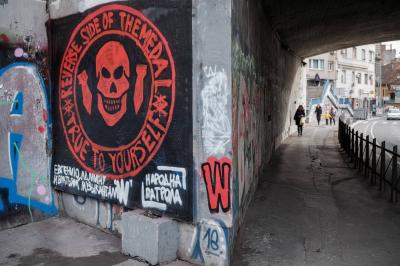The fierce attack carried out by the Wagner Group in Russia and the subsequent reactions have shifted attention to the leader of this group, raising numerous questions about the fate of both him and his organization after leaving Russian territory for Belarus. Officials in Washington stated that the United States is studying the impact of Wagner's short-lived rebellion against the Russian military establishment on the operations of the mercenary group in the Middle East and Africa.
Yevgeny Prigozhin, the leader of Wagner, astonished the world by leading an armed rebellion on Saturday, moving his fighters from the Ukrainian border to within 200 kilometers of Moscow before abruptly halting his advance. U.S. policymakers view the group through the lens of competition with Russia for influence in Africa and the Middle East, accusing it of committing serious human rights violations. The U.S. military has directly clashed with Wagner forces in Syria.
An American official indicated that among the possibilities being considered by analysts is that African leaders' willingness to hire group fighters may decline after witnessing Prigozhin's turn against his sponsors. One option presented by Russian President Vladimir Putin to Wagner members was to sign contracts with the Russian armed forces. The official, who spoke on the condition of anonymity, stated, "If these Wagner forces are absorbed into the Russian military overnight, it could be problematic. Many of these countries were not requesting a Russian military presence when they asked for Wagner forces."
The official noted that some of these African leaders are deeply concerned about internal opponents, and Wagner's march toward Moscow may fuel their fears.
#### Destabilizing Influence
Despite Wagner not being an official part of the Russian military, it is crucial for Putin because it can enhance and expand his foreign policy priorities at a fraction of the cost. Putin stated on Tuesday that the group was "fully funded" by the state budget. The organization has deployed thousands of personnel in Africa and the Middle East, building strong ties with several African governments over the past decade through operations in countries such as Mali, the Central African Republic, and Libya. Wagner played a pivotal role in the Russian invasion of Ukraine, engaging in many of the bloodiest battles against Ukrainian forces.
At the Pentagon, U.S. Department of Defense spokesperson Brigadier General Patrick Ryder declined to speculate on Wagner's future but condemned the group's actions in Africa and elsewhere, saying, "They have a destabilizing impact in that region and certainly pose a threat, which is why they have been designated a transnational criminal organization." Russian Foreign Minister Sergey Lavrov told Russian media on Monday that Wagner's activities in the Central African Republic would continue.
The American official stated that despite Lavrov's remarks, the U.S. is observing whether countries in Africa trust these promises. Prigozhin, a former ally of Putin, defied orders this month to place his forces under the command of the Russian Defense Ministry. After the rebellion, Putin stated on Monday that he would fulfill his promise to allow Wagner fighters to move to Belarus if they wished, sign formal military contracts, or return to their families.
The American official noted that much will depend on Prigozhin's fate and the extent of influence he retains with his forces in Africa. Michael Mulroy, a former senior Pentagon official, agreed that the events of the weekend could harm Wagner in Africa. Mulroy stated, "They will be seen as highly unstable and perhaps a threat to leadership in those countries. They were almost about to start a coup in [their country]."
Another American official said that despite the clear risks to Prigozhin's organization, there is a chance the group could benefit from its rebellion. The unexpected march of Wagner toward Moscow, which faced little resistance, could enhance its reputation, leading to more business in Africa. The second American official commented, "They deal in matters of violence, and that's good for promoting their image."




